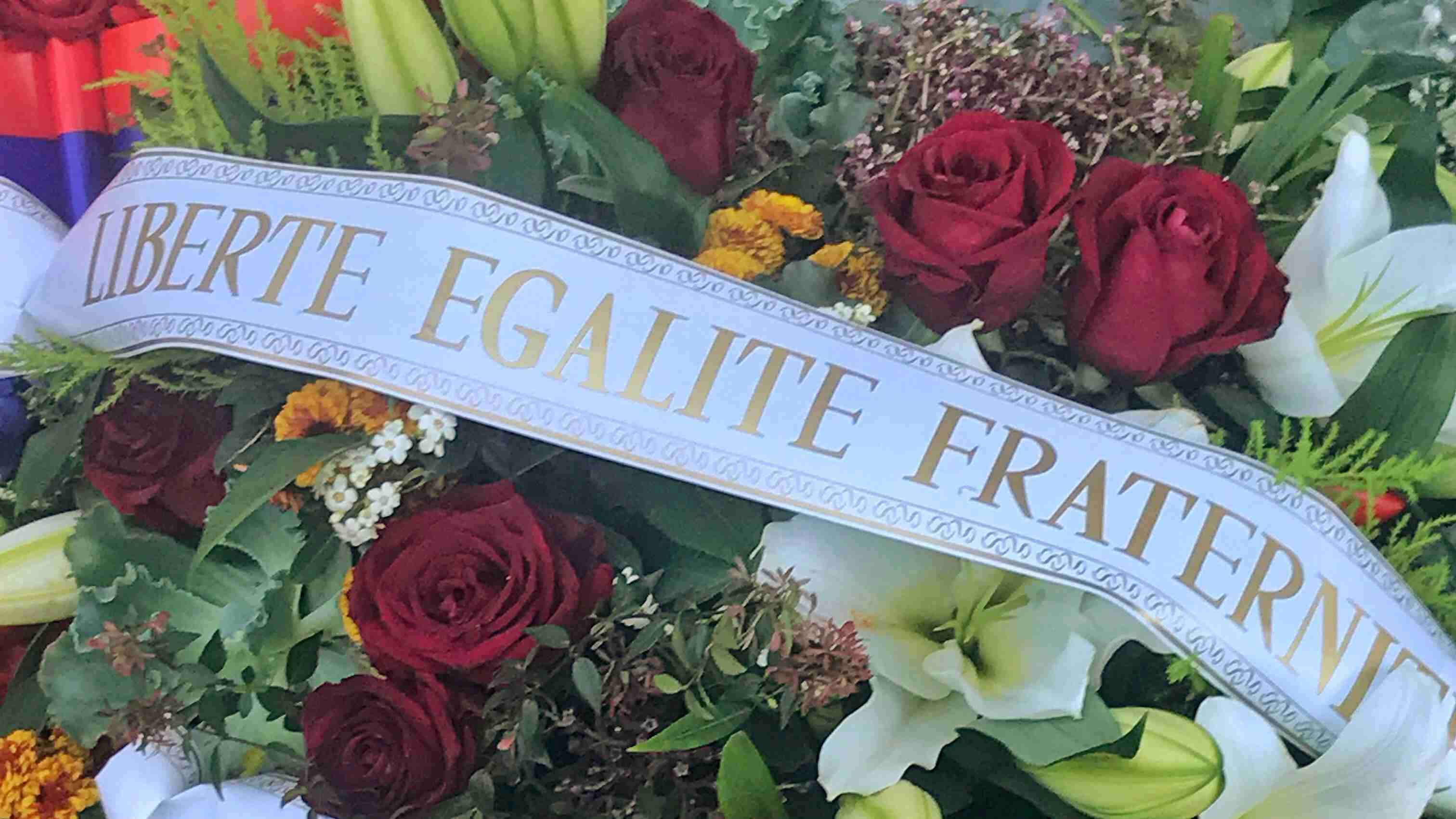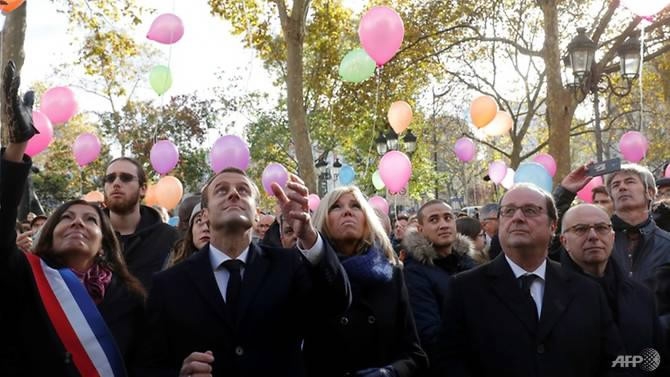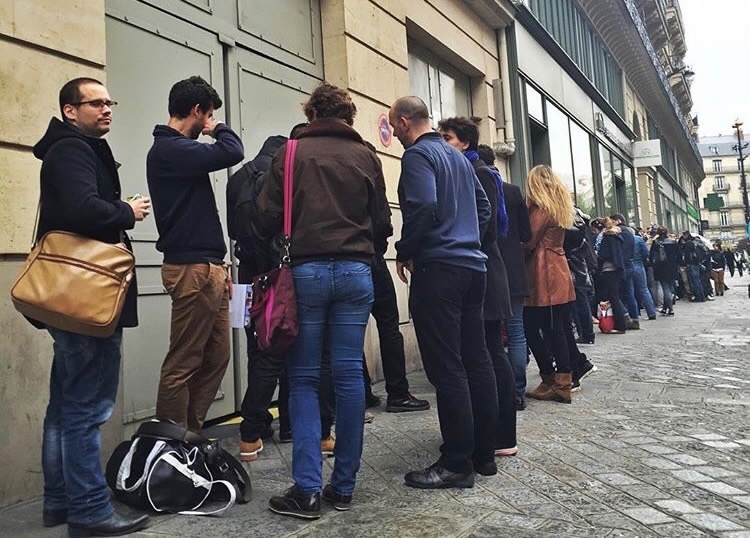
Politics
12:00, 14-Nov-2017
Reporter's notebook: Second anniversary of Paris attacks
By Kevin Ozebek

November 13, 2017, felt like any other day in the French capital. The metros were overloaded with Parisians flooding in and out of work, patisseries were packed with people grabbing a meal to go and streets were as crammed as ever with cars zipping through the City of Lights.
On this day, the scars from November 13, 2015, are barely visible.
But still in parts of the capital, the city did stop for a few moments to remember the 130 people killed by ISIL terrorists that day.
President Emmanuel Macron went to each of the sites the suicide bombers targeted and led a minute of silence.
While they were somber ceremonies, they were also low-key. Just how most French wanted to commemorate the day.

Paris Mayor Anne Hidalgo, French President Emmanuel Macron, his wife Brigitte and former president Francois Hollande release balloons for the Paris-attack victims. /AFP Photo
Paris Mayor Anne Hidalgo, French President Emmanuel Macron, his wife Brigitte and former president Francois Hollande release balloons for the Paris-attack victims. /AFP Photo
Just after the attack in 2015, Parisians showed the world their strength and solidarity as they wrapped around city blocks waiting to donate blood.
Two years on, they still show their strength and solidarity by going on with their daily business.
Filmmaker Hugo Besson sums up how most French feel when he says, “I don’t want them to win.” He says if being afraid of becoming a terror victim alters your day, that’s a win for ISIL.
So he, just like the majority of the 2.2 million people who call Paris home, had the same routine on the morning of November 13, 2017, as they did on the morning of November 13, 2015.

Blood donation centers were overwhelmed with Parisians lining up to give blood, November 13, 2015. /Photo by Kevin Ozebek
Blood donation centers were overwhelmed with Parisians lining up to give blood, November 13, 2015. /Photo by Kevin Ozebek
But Besson says make no mistake, the scars are there even if they’re hard to see. He’s working on a conceptual film about how the attacks have changed the French psyche.
Besson says while people do carry on, they also carry with them a small but ever-present fear.
"Even when they take any public transport they still have fear because they think it can (be) anywhere, anytime,” says Besson. “That wasn’t there before.”
8226km

SITEMAP
Copyright © 2018 CGTN. Beijing ICP prepared NO.16065310-3
Copyright © 2018 CGTN. Beijing ICP prepared NO.16065310-3